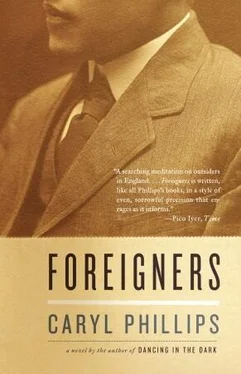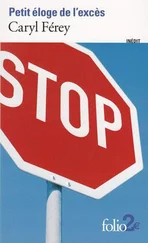'Why no, sir,' said Francis, 'I don't believe that any of them kissed my wife at all.'
'Well what, then,' thundered Dr Johnson, 'did they do with the woman?' Francis opened his mouth as though about to utter an answer, but he was too slow to please the doctor. 'Well, come along lad, what did they do to her? Nothing, I'll warrant, and you my boy are merely caught tight in the grip of that green-eyed monster, jealousy. You must learn to make clear the difference between your wife and other women you have known, for truly there is something particular about her person that you value and trust ahead of any others or you surely would not have married her, am I right?' Francis nodded. 'Then will you go back and fetch your wife instead of abandoning her like some woman of the night? Will you be a man and protector for the woman that you stood up for in church, the woman that you professed your love and affection for?' Francis lowered his eyes, as though momentarily ashamed of his behaviour, and then he slowly nodded his head. 'Well, be gone with you then,' said Dr Johnson, 'and make me proud of you, lad.' With this said, he signalled to the driver of his carriage to move off into the night, and he left Francis marooned between London and Streatham and with little choice but to turn on his heels and retrace his steps in search of his wife.
It was difficult for me to believe that the fair woman who had won the heart of Francis Barber, and the woman whose loyalty Dr Johnson eventually came to respect, bore any relation to the fatigued creature who sat before me as I drank my tea. What hardships this Betsy must have endured in the intervening years, for it was evident that the two children that she had given birth to before the death of the doctor, and the daughter that she had produced afterwards had, together with poverty and an excess of hard work, conspired to deprive her of what must once have been an enchanting aspect. For a moment I looked beyond Mrs Barber, and the child curled across her lap like a slumbering animal, and I peered out of the window to where the sun had momentarily hidden itself behind a cloud. Then, realising that having been granted an audience with this woman it was remiss of me to suddenly disengage and peer idly through her window, I returned my attention to Mrs Barber.
'Might I prevail upon you to answer some questions relating to your late husband? As I have mentioned to you already, I am hoping to assemble a short biographical sketch for the Gentlemen's Magazine in London.' I paused. 'I can assure you that this is a most respectable publication and a small entry pertaining to your late husband can only help his reputation.'
As I concluded my words I noticed that the woman appeared to be genuinely alarmed, so much so that she set her child in a chair next to herself, carefully making sure that she did not rouse the mite. She began slowly. 'Please sir, I'm afraid I don't understand. Or perhaps you know something that I'm not aware of, and if you do may it please you to share your news with me. You see, to the best of my knowledge, my Frank is not deceased, or at least not yet. He's alive, but ailing badly in the infirmary. The doctor said he could linger like this for a good while and we've no guarantee when he'll be relieved from his misery.'
Now it was my turn to appear amazed. Had the innkeeper given me false information, or was this poor woman simply unaware of her husband's recent demise? I asked when exactly was the last time that she had spoken with her husband, and on receiving the news that she had seen him only the previous morning I concluded that the intelligence of the doltish innkeeper must have been misguided.
'My Frank has suffered a great number of difficulties during these past few years, and he's not always been comfortable in mind and body. Life hasn't been very kind to Frank since we left London two years after the doctor's death, and then came up here to Lichfield. It was his master's idea. I know he meant well, as he always meant well for his Frank, but maybe we'd have been better off staying in London where we knew people and could always make a few shillings. But the doctor always thought that people up here in his home town would look out for Frank on account of Frank having been so faithful to his master, but it turned out that people didn't care that much. You understand, Lichfield is where the doctor's from. My Frank's from Jamaica, but I expect you already know that, don't you?' I nodded, but said nothing for I was eager for her to continue. 'It's not been easy with the children, and then there were those who cheated us. Lots of them. Eventually we came out here to Burntwood to open a school and pass on the gift of knowledge that Frank's master had given to him. We wanted to bestow it on common people who might otherwise have remained in ignorance. Reading and writing, reason and logic, the principles of self-expression and the knowledge of the Lord, this is what Frank felt he could share with the people, but it seems like most of them wanted to receive such instruction from a more visibly competent source, if you're understanding me. Then Frank's health began to turn for the worse, and so I don't know what else I can say. It was always his master's idea that we leave London and come to Lichfield, and eventually Frank thought alright, but I remember having reservations at the time. I suppose I still have them now, all these years later.'
Towards the end of Dr Johnson's life Francis' presence became increasingly necessary, for it was apparent to all that the doctor's health was failing rapidly. His household was now located at 8 Bolt Court in an alley off Fleet Street, and Dr Johnson was paying the reasonable sum of forty pounds a year for a tall house with a garden to the rear. However, these years were to prove difficult for the doctor as he entered a period of great affliction. Miss Williams, though still present, was increasingly enfeebled, while Mrs Desmoulins and her daughter had suddenly moved clear away. Mrs Desmoulins had been unable to endure any further bickering with Miss Williams, but she had also chosen to go into hiding in order that she might avoid an indictment for debt that had recently been served upon her. Despite her capacity to be as mean and petty as Miss Williams, the doctor mourned the sudden absence of Mrs Desmoulins and it served only to deepen his sense of abandonment. After all, he had recently lost both of his dear friends, the actor David Garrick, and the literary man Oliver Goldsmith, while his Scottish companion, Mr James Boswell, was practising law in faraway Edinburgh. Furthermore, there had been an unfortunate misunderstanding, and subsequent 'break', with Mrs Thrale which, though now somewhat resolved, had left a rift in their friendship that he understood would never be fully healed. In addition to these tender sorrows, he also mourned the passing of his house companion of thirty years, the destitute and dishevelled Dr Levett, who, like Francis, could be relied upon to join him for fireside conversation from the early evening and, if necessary, continue clear through until dawn.
Sadly, the doctor's ailments were such that it was no longer possible for him to roam the narrow, dirty, streets off the Strand, places that were shadowy and populated with a full tide of beggars, thieves, and abandoned women. These were dangerous passageways where violence was commonplace, but the doctor was long accustomed to observing and relishing this low life. Those irritating fellows, the night watchmen who bawled the hour in every dark street and alley of the city, were entirely familiar with his immense bulk and greeted him almost as one of their own. However, being a man dedicated to the night, the curtailment of his roaming proved a crushing blow to the doctor's spirit. Confined now to Bolt Court, loneliness was fast becoming a mortal enemy of the doctor, and he bestowed the name 'black dog' upon his deplorable bouts of melancholia. He appeared to have even lost his tendency to become excessively distracted at what he insisted were his witticisms, but what others often perceived to be nothing more than very small japes. No longer did the doctor relish his own jocularity and send forth loud and uninhibited peals of laughter, and life at Bolt Court was rapidly becoming miserable for residents and visitors alike. 'When I rise,' said the doctor in a letter to Mrs Thrale, 'my breakfast is solitary, the black dog waits to share it. . Dinner with a sick woman you may venture to suppose not much better than solitary. After dinner what remains but to count the clock, and hope for that sleep which I can scarce expect. Night comes at last, and some hours of restlessness and confusion bring me again to a day of solitude. What shall exclude the black dog from a habitation like this?'
Читать дальше











![Unknown - [Carly Phillips] The Bachelor (The Chandler Brothe(Bookos.org) (1)](/books/174132/unknown-carly-phillips-the-bachelor-the-chandle-thumb.webp)
